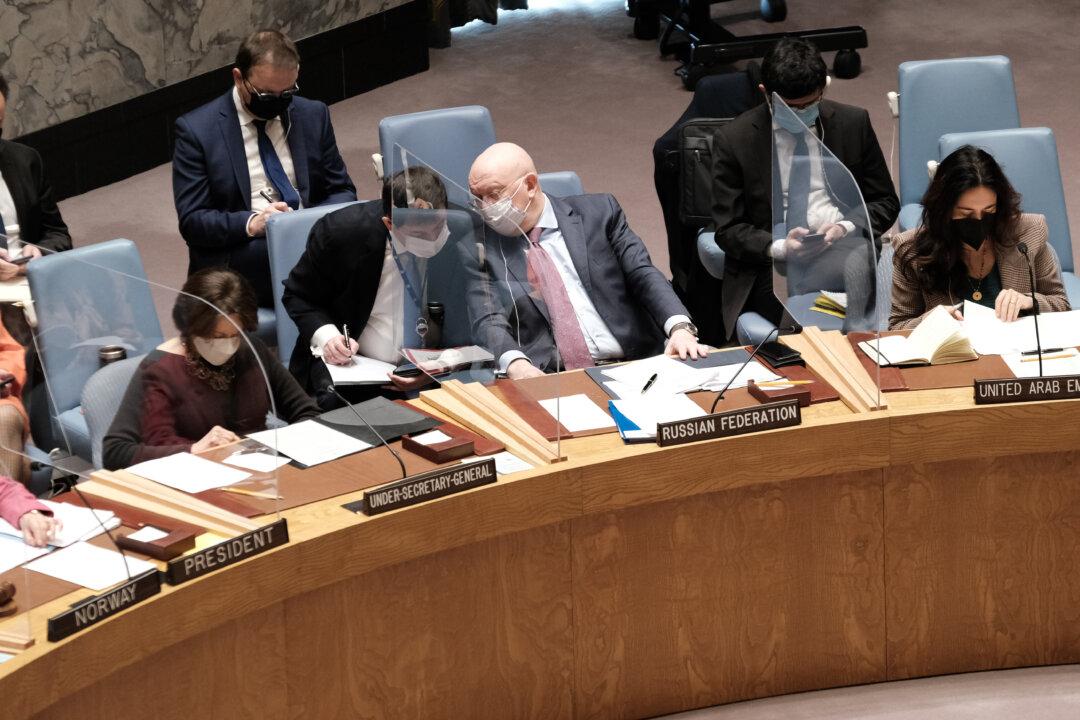The United Nations Security Council gathered on Jan. 31 at the request of the United States to discuss Russia’s military buildup near its border with Ukraine.
U.S. Ambassador Linda Thomas-Greenfield, following opening remarks by Russian diplomat Vasily Nebenzya, said the United States called for the meeting to protect peace and security, saying the negotiations are not about the United States and Russia, but about the peace and security of member-states.





